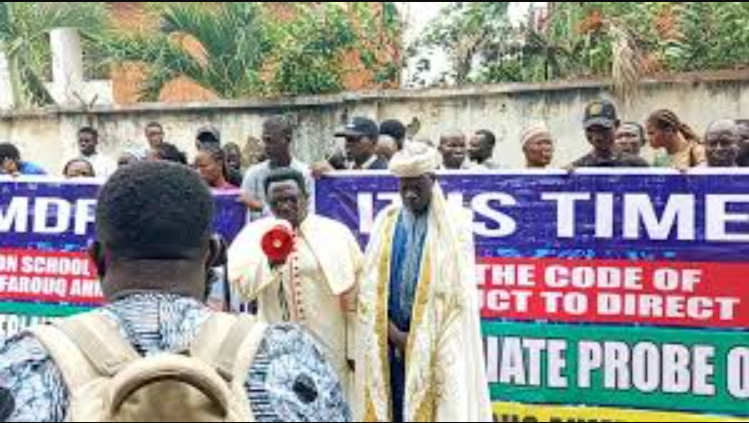The management of Yakubu Gowon University (formerly University of Abuja) has come under fire after granting amnesty to students previously sanctioned for examination malpractice, a decision that has sparked uproar and allegations of political influence within the university community.
In a memo dated July 16, 2025, signed by Mustapha Tanimu, Deputy Registrar (Academic), and circulated to key officers, the institution announced the implementation of a blanket amnesty for students involved in examination misconduct between the 2020/2021 and 2024/2025 academic sessions. The directive, which followed the University Senate’s 189th Regular Meeting held on May 28, instructed faculties to reinstate all affected students.
“This decision was aimed at promoting a fresh start… The amnesty was granted due to the delay on the part of our Institution,” the memo stated.
According to the university, the amnesty was necessitated by prolonged delays in addressing the cases submitted by the Central Examination Misconduct Committee. The leadership cited the need to offer students “a second chance” as the main reason for the blanket pardon.
However, this explanation has done little to quell growing dissent across campus, especially as fresh details emerge suggesting the decision may have been selectively motivated.
Documents obtained by SaharaReporters reveal that two students, Moore Emmanuel (Medical Microbiology & Parasitology) and Bassey Gold Okon (Chemical Pathology), were among those reinstated.
Both students were caught with smartphones during exams in June 2023—a violation of Section 10 of the university’s student handbook—and were recommended for expulsion by the examination misconduct committee.
“He is recommended for expulsion in accordance to the rule guiding examination processes of the University,” read the report on Emmanuel.
“Examination malpractice with the use of iPhone 13 despite repeated announcements,” the committee stated about Okon.
While the amnesty is officially described as a general pardon, multiple sources within the university allege that the real trigger was Bassey Gold Okon’s close ties to Senate President Godswill Akpabio.
“The only reason for the reinstatement is because of the girl,” a senior staff member alleged.
“Most affected students didn’t even return—many already transferred. But she kept coming, threatening management with her influence.”
The claims have led to widespread accusations of favouritism and nepotism, casting a shadow over what was presented as a humanitarian gesture.
Across faculties and student circles, opinions are sharply divided.
“So this is the new standard? Just get caught cheating, and if you know someone powerful, you’ll be fine,” said a final-year student in the Faculty of Law.
“It’s disgraceful. We worked hard to uphold academic integrity, and now the rules don’t apply to everyone,” another added.
Critics argue that the move undermines the institution’s credibility, especially when compared to past actions. In 2019, the university expelled over 100 students for examination misconduct, a move that was widely seen as a strong statement on academic discipline.
When contacted by SaharaReporters, the university’s Director of Public Relations, Dr. Habibi Yakoob, said he was unaware of the memo but promised to investigate. As of the time this report was filed, no official response had been issued by the university’s leadership.
The development raises fundamental questions about equity in Nigerian higher education:
- Is amnesty a noble act of forgiveness or a cover for selective justice?
- How should institutions handle discipline when political ties interfere with due process?
Until the university issues further clarification or an internal probe is initiated, the legitimacy of the amnesty—and the ethics behind it—will remain hotly debated.
Academic stakeholders, alumni, and civil society groups are watching closely. Will Yakubu Gowon University stand by its decision, or will it review the process and address the swirling allegations?
For now, the university’s reputation hangs in the balance.

